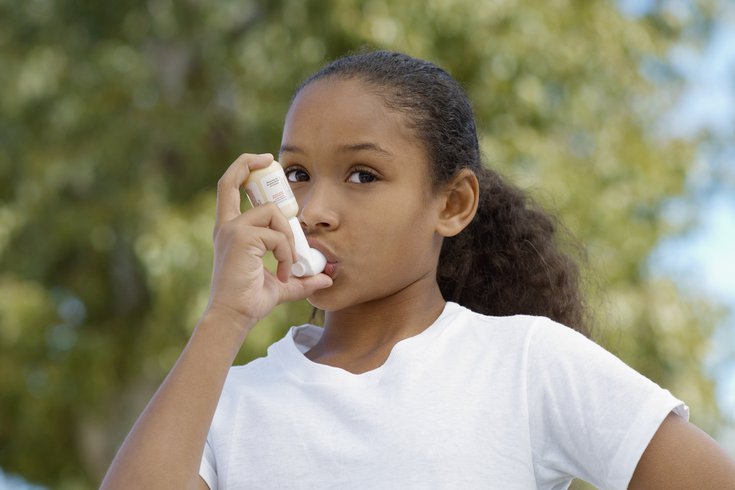
April 25, 2023
 Parinyabinsuk/istock.com
Parinyabinsuk/istock.com
Infants that are infected by respiratory syncytial virus, or RSV, are at higher risk of developing childhood asthma, research shows.
Last fall, hospitals across the United States experienced a surge of children infected with respiratory syncytial virus, a common illness that can have serious effects on infants. They include an increased risk of developing other respiratory conditions.
Scientists have observed a link between RSV in infancy and the later development of asthma for decades, but the underlying mechanisms are still not clear. The most recent study, published last week by The Lancet, explored how the severity of an RSV infection in the first year of life affects childhood asthma risk.
"For 60 years investigators have repeatedly identified the link between severe RSV and asthma; however, we've shown that this link is explained in part by shared heredity to both severe RSV and asthma," said Dr. Tina Hartert, director of the Center for Asthma and Environmental Sciences Research at Vanderbilt University in Tennessee.
The researchers found that infants that were not infected with RSV during their first year of life were 26% less likely to develop childhood asthma. More than half of the the 1,900 infants involved in the study came down with RSV.
By age 2, most children have been infected by RSV, according to the U.S. Centers for Disease Control and Prevention. Symptoms include coughing and wheezing and, in severe cases, difficulty breathing.
Premature and very young infants are among those with the highest risk of serious complications from a RSV infection. RSV is the leading cause of bronchiolitis, a lower respiratory infection common in infants and young children.
An RSV infection during infancy, when the lungs and immune system are still developing, may cause abnormalities that later lead to asthma, the researchers said. But they cautioned that, to prove causality, research must be conducted on the impact that various RSV interventions have on the development of childhood asthma.
"We hope the results of this study motivate long-term follow-up of common respiratory outcomes among children in ongoing clinical trials of RSV prevention products, including vaccines and monoclonal antibodies that can decrease the severity of the infection," said Dr. Christian Rosas-Salazar, assistant professor of pediatrics at Vanderbilt.
Even within the first year of life, the risks posed by RSV may differ, other research has shown.
One study found that infants ages 6-12 months that were hospitalized with RSV had a higher risk of developing childhood asthma or chronic wheezing than those that were hospitalized with RSV in their first 6 months of life.
The researchers estimated that the risk for hospitalization for asthma was up to 7 times higher in children that were hospitalized for RSV when they were 6-12 months old. This was despite the fact that more RSV infections occur before 6 months of age.
They theorized that maternal antibodies may offer more protection during the first 6 months of life. The alveolar multiplication and airway remodeling that naturally occur during the first 6 months may prevent permanent damage to the respiratory system, they said. Alveoli are tiny air sacs located at the end of the bronchioles in the lungs. Their job is to transport oxygen and carbon dioxide molecules back and forth from the lungs and the bloodstream.
Another study suggested that a child's susceptibility to allergies plays a role in whether an RSV infection leads to the development of asthma. The study also identified higher birth weight and later RSV onset as risk factors.
There are no vaccines available for RSV, but several candidates are in development. The Asthma and Allergy Foundation of America recommends the following preventive measures to protect children from RSV:
• Make sure children are vaccinated against influenza and COVID-19 to reduce their risk of severe respiratory illness.
• Wash hands often with soap and water for at least 20 seconds and avoid touching faces with unwashed hands.
• Avoid coming in close contact with sick people.
• Talk to child care providers about their RSV prevention policies.
• Limit children's time in highly contagious settings where exposure is more likely.
Children that are considered at high risk for severe RSV may benefit from palivizumab, a monoclonal antibody treatment. The medicine can't prevent an infection, but it can reduce the severity of illness.